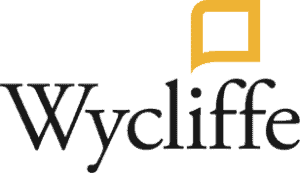An international team of 12 organizations including Wycliffe Canada and its partner OneBook are providing linguists, consultants, exegetical advisers and software specialists to develop a new software tool: The Bible Translator’s Assistant (TBTA). The software has potential to speed access to God’s Word among minority language groups, without sacrificing quality or accuracy. Additionally, it provides initial exegetical insights (critical explanation or interpretation of the text) and produces a working draft of the Bible directly into the focus language of the project.
Spearheaded by Prescience Labs, a Wycliffe Canada initiative focused on developing creative and imaginative approaches to challenges facing the Bible translation movement in this time of unprecedented change, the software aims to reduce the time it takes to draft translations of Scripture for remaining language groups without God’s Word by up to 40 per cent.
Five language groups are already using TBTA in its current form, with encouraging results. Two additional pilot projects are set to begin in 2022.
“What is good is that, so quickly, it is already in our language,” says Pastor Dino Abuque, who serves with a translation team in the Philippines. “It’s not like before when we had to think in Tagalog, and then wonder how to say it in our language . . . it was a long process. Not like now, where right away it is in our language! We just have to make it sound like we speak.”
How it works
There are two main steps to implementing TBTA.
- Create specially designed digital templates for each book of the Bible. These templates are developed to capture the original meaning of the Hebrew and Greek Scriptures. Once these templates are produced, they can work with any analyzed language.
- Analyze target language and input information into TBTA. Once templates are available, staff analyze a target language to gather important grammatical information, such as sentence structure and parts of speech, as well as the lexicon of all the words that are found in the Bible. This information is entered into TBTA and applied to the templates to create the draft of each book of the Bible.
Key benefits
- Promises to reduce the time needed to complete translation for nearly 1,900 language groups still waiting for God’s Word in the language that best serves them.
- Gives language groups more ownership in Bible translation, by reducing the educational requirements needed to engage in the work.
- Addresses the biggest bottleneck in Bible translation: the lack of qualified consultants. In recent field trials, TBTA has been shown to meaningfully reduce a consultant’s workload.
- In the future, TBTA could be used to help create libraries in minority languages like health booklets, literacy tools, or advocacy materials.
Field tested
In the Philippines, a team of local translators recently did experiments with the drafts of Jonah and Ruth that were produced in their own language using TBTA software.

Roger Stone, a translation consultant and facilitator with Wycliffe’s primary technical partner, SIL, worked with the language group on their translation. He explained:
“Having an exegetically accurate and a grammatically correct clear version to translate directly into their language, helps local translators pass the difficulties in exegesis and translation, and enables them to immediately use their skills to produce an excellent translation of the Scriptures.
“I observed that while the local mother-tongue translators were working through the draft of Jonah, they could revise for naturalness without me needing to be there.
I also observed that . . . they felt the freedom to search for the most expressive terms that made the draft rich and meaningful. They were able to give all their attention to naturalness issues, because the meaning of the text, in their language, was already clear.
This is why I’m so enthusiastic. . . . It seems the perfect fit for [this] team, and for other teams like them around the world.”
The full development of the TBTA system will take about five years. This is the man-power equivalent of translating only one and a half New Testaments.
Wycliffe Canada’s David Duncan serves as the project leader for TBTA with OneBook. David and his wife Neva joined Wycliffe in 1996, serving Bible translation by providing computer and software support for members and their national co-workers. David has also served as a OneBook project liaison, connecting with national translation partners in Kenya, the Philippines and Indonesia. To learn more about David Duncan and his work with TBTA, visit his profile page.

